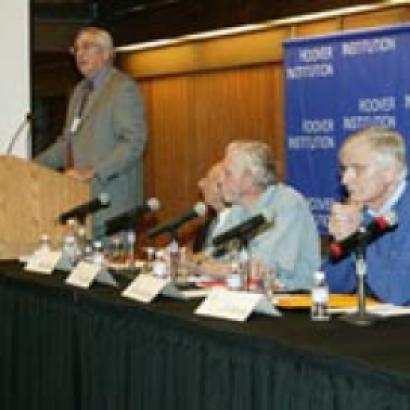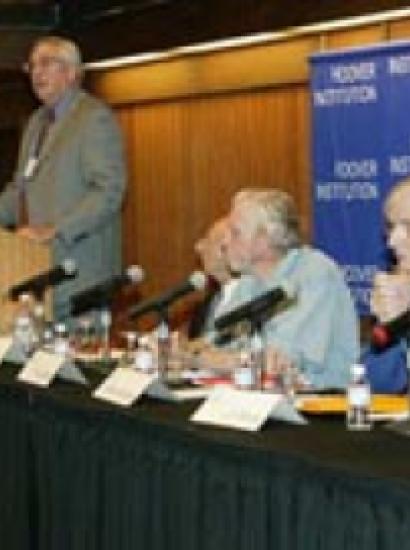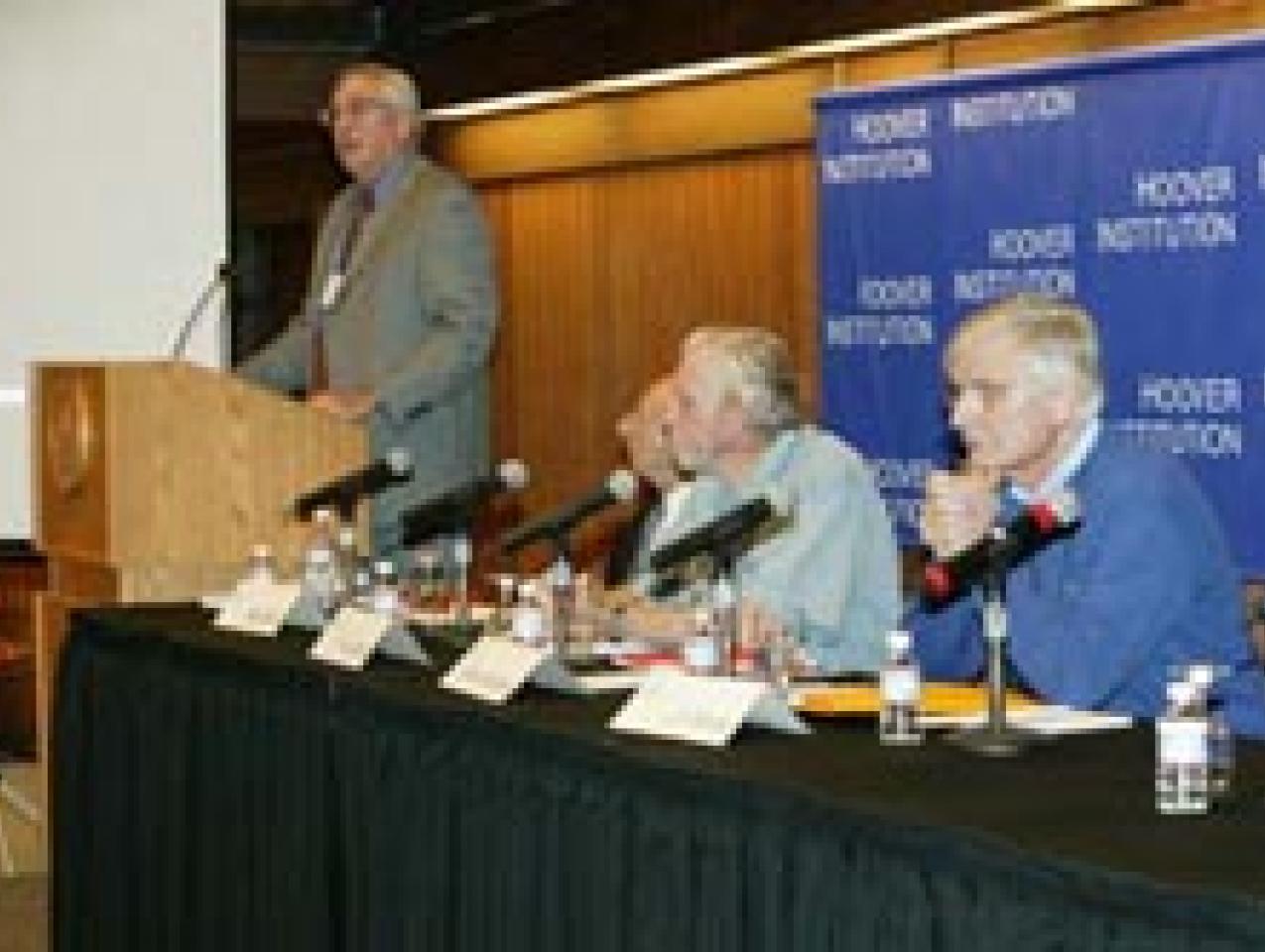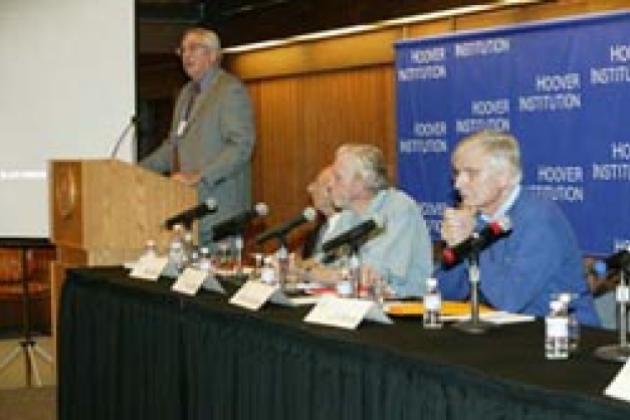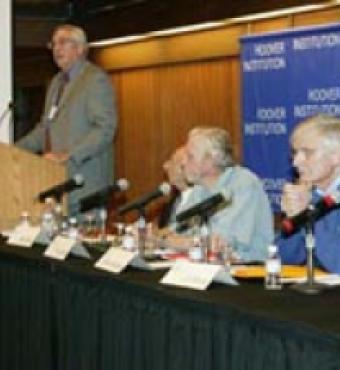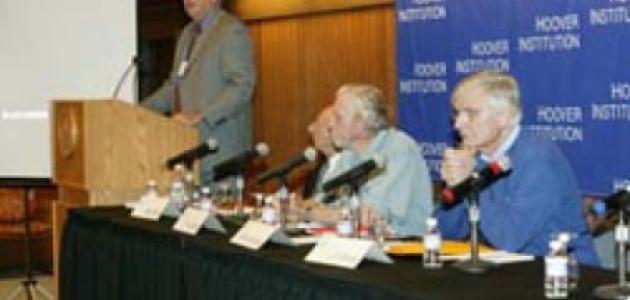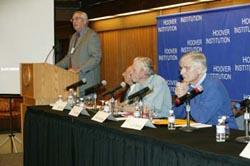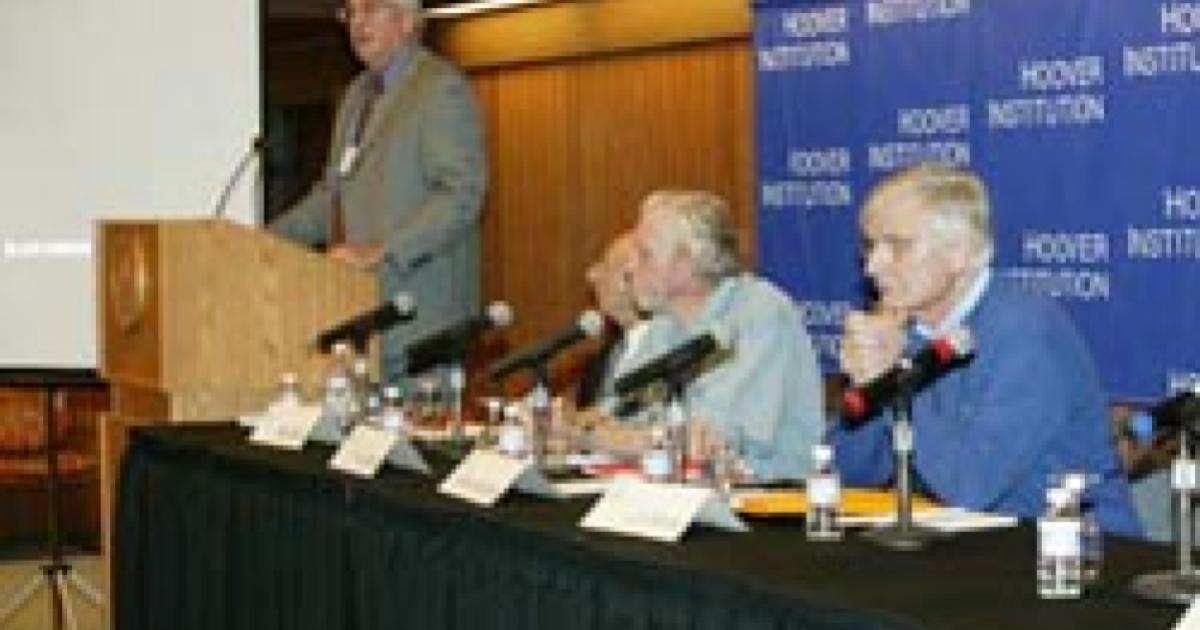
International researchers and former government officials met last week at the Hoover Institution to address the impact of Western broadcasting—especially Radio Free Europe and Radio Liberty (RFE/RL)—during the Cold War. The conference report (PDF download 474 KB), accompanied by a "lessons learned" briefing prepared by A. Ross Johnson and Gene Parta, is now available.
George P. Shultz, Hoover Distinguished Fellow opened the conference. He said the research presented this week "would contribute to a better understanding of an important period of world history and contribute to our ability to structure communications in the new global political arena."
Vaclav Havel, once a dissident and later president of the Czech Republic, welcomed conference participants in a video message. He said the "influence and significance of RFE/RL broadcasts had been great and profound."
Hoover Director John Raisian introduced human rights activist Elena Bonner and RFE/RL President Tom Dine, who addressed the meeting. The conference was organized by Hoover research fellow A. Ross Johnson. Participants included Dr. Elena Bashkirova, president of the Romir survey research firm in Moscow; Professor Istvan Rev, head of the Open Society Archives in Budapest; Oleg Kalugin, a former KGB general; and former RFE/RL, VOA, and BBC broadcasting officials.
The conference discussed papers based on research in previously inaccessible East European and former Soviet communist archives. These materials include secret Communist Party discussions of broadcasting impact and propaganda countermeasures, secret police plans to penetrate RFE/RL, directives on jamming, and internal secret audience surveys.
This research will now be enriched by work in the extensive RFE/RL corporate records and broadcast archives, which have been donated to the Hoover Institution (http://hoorferl.stanford.edu). Hoover Associate Director Elena Danielson
who co-hosted the conference announced the opening of most of this collection for research.
The Hoover Institution and the CWIHP will publish a summary of the proceedings and an edited volume of key papers and translated archival documents.
Organizers were the Hoover Institution at Stanford University and the Cold War International History Project (CWIHP) of the Woodrow Wilson International Center for Scholars. The conference, which was October 14–16, was made possible by a generous gift from the Bernard Osher Foundation. The Annenberg Foundation Trust at Sunnylands is sponsoring a synthesis of the conference results.
Voices of Hope: The Story of Radio Free Europe and Radio Liberty Exhibit
The conference was held in conjunction with the exhibit Voices of Hope: The Story of Radio Free Europe and Radio Liberty. In this exhibit the Hoover Library and Archives covers the often controversial effort by the United States government to reach listeners with news about their countries and promote democracy from its beginnings to today.







